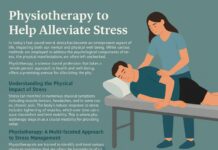
Hormonal imbalances can affect people of all ages and often present through subtle, yet disruptive symptoms. Fatigue, mood swings, sleep disturbances, unexplained weight gain, or decreased libido may indicate your hormones are not functioning as they should. These issues can gradually interfere with daily life, relationships, and long-term health.
Seeking the proper support is key to restoring balance. A comprehensive evaluation through a men’s wellness clinic can help identify underlying causes and guide personalized treatment plans. These clinics focus on whole-body health, using lifestyle changes, diagnostics, and medical interventions to address hormonal shifts. Early attention to symptoms can lead to improved energy, better mental clarity, and overall well-being.
Common Signs of Hormonal Imbalance in Men
Hormonal imbalances can look different depending on which hormone is affected. While testosterone tends to get the most attention in male health discussions, other hormones such as cortisol, insulin, and thyroid play vital roles. Here are some signs that may point to an imbalance:
1. Fatigue That Doesn’t Improve with Rest
Persistent tiredness, especially when it doesn’t improve with sleep, may indicate low testosterone or thyroid dysfunction. These hormones affect how your body produces and uses energy.
2. Weight Gain or Difficulty Losing Weight
Unexplained weight gain—particularly around the midsection—can be linked to elevated cortisol, low testosterone, or insulin resistance. If you’ve been eating well and exercising without seeing progress, hormones may be the missing piece.
3. Decreased Muscle Mass and Strength
Testosterone plays a key role in muscle maintenance. Despite regular physical activity, a decline in muscle strength or size may suggest a drop in testosterone levels.
4. Low Libido or Sexual Performance Issues
Reduced sexual desire, difficulty with erections, or less frequent morning erections can be connected to testosterone levels or circulation issues, both of which are influenced by hormones.
5. Mood Swings or Depression
Hormonal imbalances can impact brain chemistry. If you’re experiencing anxiety, irritability, or signs of depression without a clear cause, your hormones could be part of the issue.
6. Poor Sleep Quality
Cortisol imbalances and low testosterone are both known to affect sleep. It might be worth getting evaluated if you’re waking up throughout the night or feeling unrested in the morning.
Diagnosing Hormonal Issues: What to Expect
If you suspect a hormonal imbalance, starting with a thorough evaluation is crucial. A healthcare provider may begin by reviewing your symptoms, medical history, and lifestyle. Typically, a blood test is used to measure key hormone levels—such as total and free testosterone, estradiol, cortisol, insulin, and thyroid hormones. Additional diagnostic tools might include physical exams, metabolic panels, body composition assessments, or cardiovascular health checks. It’s important that testing is done at the appropriate time of day (for example, testosterone levels are usually highest in the morning) to ensure accurate results.
The testing process is usually quick and straightforward, with many men’s clinics near me offering on-site laboratory services to streamline the experience. Once results are in, a healthcare professional can explain your hormone profile and discuss what’s considered normal for your age, health status, and goals.
Treatment Options and Lifestyle Adjustments
Treatment for hormonal imbalances varies depending on the severity and underlying cause. Here are some standard options:
1. Testosterone Replacement Therapy (TRT)
If low testosterone is confirmed, testosterone replacement therapy may be considered. TRT can be administered through injections, gels, patches, or pellets. It’s typically prescribed after a thorough risk assessment and is monitored closely for safety and effectiveness.
2. Lifestyle and Diet Changes
Sometimes, adjusting your habits is enough to restore balance. Reducing processed foods, cutting sugar, exercising regularly, and prioritizing sleep can help normalize hormones. Managing stress is especially important for cortisol regulation.
3. Supplements and Nutritional Support
Specific nutrients like vitamin D, zinc, and magnesium support hormone production and balance. A healthcare provider may recommend supplements based on lab results and symptoms.
4. Addressing Underlying Medical Conditions
If the hormonal issue stems from thyroid dysfunction, insulin resistance, or another condition, treating the root cause becomes a priority. This might involve medications, dietary modifications, or other therapies.
When to Seek Help
Many men delay seeking help for hormone-related symptoms, assuming that fatigue, weight gain, or low libido are just a part of aging. However, while some change is regular, significant shifts or persistent symptoms deserve attention.
If you’ve been experiencing more than one of the signs mentioned—and especially if they’ve begun to affect your quality of life—it’s worth talking to a healthcare provider. Hormone imbalances are not just about feeling “off”; they can be linked to serious long-term health risks including heart disease, diabetes, and osteoporosis.
Early detection makes a difference. The sooner a hormonal imbalance is identified, the sooner a tailored approach can be used to restore balance, improve symptoms, and support your long-term health.
Final Thoughts
Hormonal health plays a crucial role in men’s wellness, though often overlooked. Symptoms like low energy, weight gain, mood shifts, and reduced libido may all point to an underlying hormonal issue that can—and should—be addressed.
Understanding the warning signs, getting tested, and exploring treatment options are key steps toward reclaiming energy, confidence, and vitality. With the support of experienced medical professionals and appropriate care strategies, balance is possible—both hormonally and in life overall.







